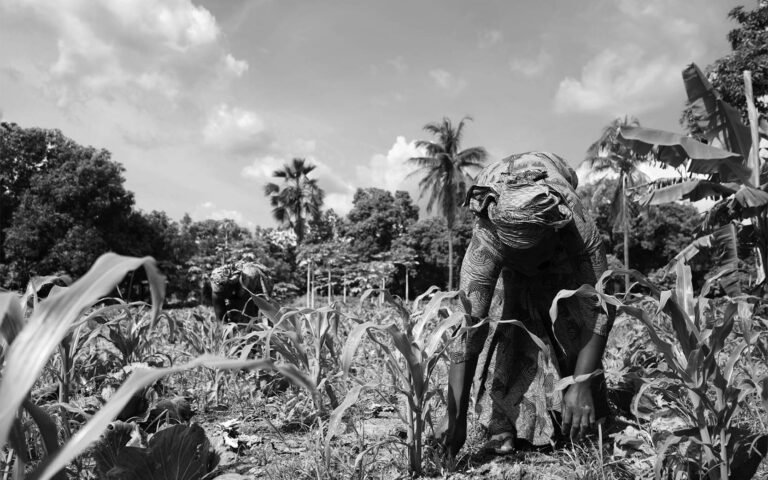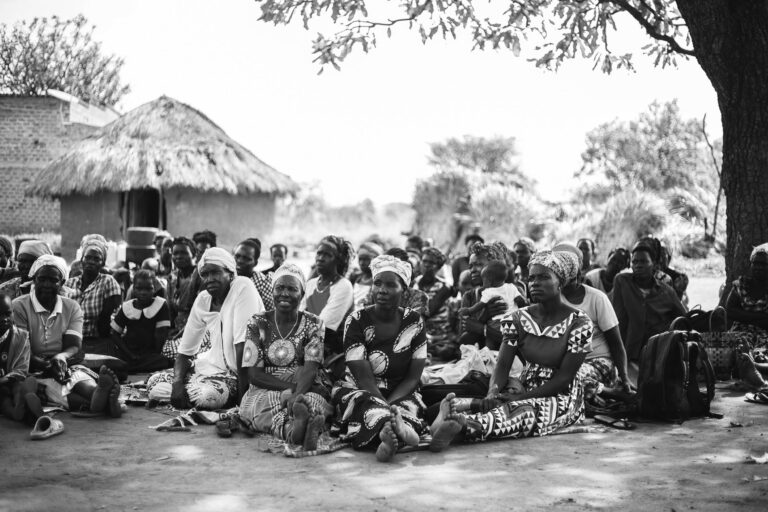Disclosure related to SFDR
Under the SFDR, all Article 9 funds are required to publish sustainability-related information on their website.
This statement is the consolidated website disclosure for Nordic Impact Fund’s (NIF) sustainable investments. It covers disclosure relating to Article 3 (integrating sustainability risks in investment processes), Article 4 (principal adverse impacts on sustainability factors of investments) and Article 5 (remuneration) of the Sustainable Finance Disclosure Regulation (SFDR).
Additional impact and sustainability related information is also available in NIF’s Prospectus and Impact Policy.






SUSTAINABLE INVESTMENT OBJECTIVES OF THE FUND
The overall objective of Nordic Impact Funds is to increase livelihoods and resilience for underserved populations by promoting economically, socially, and environmentally sustainable business models that contribute to increased financial health and climate change adaptation and resilience for low-income populations (bottom 40% of the income pyramid) and women, in particular.
More specifically, the Fund’s sustainable investment objectives are:
- To empower smallholders and other food value chain players to adapt and cope with the impacts of climate change (environmental/social)
- To increase sustainability of food and agricultural practices (environmental)
- To cultivate a resilient financial ecosystem, ensuring inclusion, affordability, efficiency and financial resilience for the underserved (social)
To contribute to these sustainable investment objectives, the Fund invests climate-smart and gender-smart in local SMEs with good solutions to the challenges of low-income populations and women in particular). The Fund focuses on two thematic verticals; Food Systems and Agribusiness Solutions (where the majority of the target group is engaged and/or dependent), and Financial and Digital Enablers (which enables access and affordability of critical products and services for financial health and climate resilience).
PROPORTION OF INVESTMENTS
NIF invests at least 100% of its Net Assets in sustainable investments of which at least 50% have an environmental objective, and 100% have a social objective. The activities of the Fund’s investees contribute to the following climate and environmental objectives under the EU Taxonomy: 2) Climate change adaptation, 3) Sustainable use and protection of water and marine resources, and 6) protection and restoration of biodiversity ecosystems.
NO SIGNIFICANT HARM TO THE SUSTAINABLE INVESTMENT OBJECTIVE
Nordic Impact Funds aims to not only generate positive impacts through its investments, but also minimize the negative impacts and sustainability risks it has. Every new investment is assessed to ensure that it does not cause significant harm to the sustainable investment objectives of the Fund. All principal adverse impact indicators are considered in the investment process.
PRINCIPLES ADVERSE SUSTAINABILITY IMPACTS (PAIs)
Nordic Impact Funds considers and discloses information on the principal adverse sustainability impacts it has – as outlined under the EU’s SFDR regulation. These impacts are defined by the EU as “negative, material or likely to be material effects of investment decisions on sustainability factors”. Nordic Impact Funds reports on all mandatory PAIs, in addition to one environmental optional indicator, and one social optional indicator. For the selection of optional PAI indicators, Nordic Impact fund has assessed the degree of relevance for the Fund’s portfolio, the alignment with other reporting requirements, as well as the feasibility of reporting for investees. See the full list of indicators in the Annex. The Fund’s performance on these indicators is made available to investors on an annual basis.
MONITORING OF SUSTAINABLE INVESTMENT OBJECTIVES AND PAIs
Integration of sustainability objectives and principle adverse impacts in the investment process
Nordic Impact Funds has detailed screening, due diligence, and monitoring policies in place to review the impact of investment decisions on sustainability factors that are likely to be material.
Remuneration policy
NIF receives a 15% carried interest on the proceeds of the Fund. A part of this carry is dedicated to incentivizing and rewarding portfolio companies for reaching financial and impact targets (impact-linked finance). NIF does not remunerate its employees based on any financial or impact performance of the portfolio and seeks to ensure that all investment decisions are based on a holistic assessment and motivation.
METHODOLOGIES
To measure alignment with our long-term sustainable investment objectives, NIF has established a set of indicators which we measure progress against and report on periodically.
Nordic Impact Fund, as per its investment mandate, invests primarily in non-listed SMEs in emerging markets, who do not usually publish any information on their business and environmental and social impacts. Our reporting methodology is therefore mainly based on questionnaires sent to each prospect and investee, to measure compliance with our defined Impact Policy and indicators. Additionally, these sources of information are regularly double-checked and verified by our Impact team.
Nordic Impact Funds is a member of PCAF (Partnership for Carbon Accounting Financials) and uses their methodology to report on GHG emissions of its portfolio companies. This methodology is based on a PCAF emission factor database, providing an approximate assessment of emissions intensity in each sector and country.
LIMITATIONS TO METHODOLOGIES AND DATA
NIF invests in early to growth stage SMEs in East Africa which means that there are certain limitations relating to the quality of data collected and estimations made. For example, for investments in the agricultural sector, PCAF provides estimates based on the geography and sector of a company but does not distinguish between large and small scale farming nor sustainable agricultural practices and conventional practices.
SCREENING AND DUE DILIGENCE
Nordic Impact Funds positively screens opportunities which match the Fund’s sustainability and impact objectives. NIF assesses all potential investees on an Impact Assessment, which considers the Breadth, Depth, Inclusion and Additionality of the impact generated through their business.
Each opportunity is thereafter assessed on their negative impact, to screen out companies which fall inside the scope of NIF’s Exclusion List, or otherwise have a material negative social or environmental impact.
The investment decision ultimately depends on the level of risk identified and potential for remediating actions that could be set up before or during the investment period.
ENGAGEMENT POLICIES
The Fund constantly interacts with its portfolio companies to learn from them and improve their approach towards sustainability.
An extensive review is performed annually, in accordance with NIF’s sustainability reporting process. Each portfolio company is assessed on environmental, social and other sustainability indicators to make sure they continue to contribute to the Fund’s sustainability objective, that they do not significantly harm any objective, and that they are actively mitigating any adverse sustainability impacts. As part of the annual reporting process, NIF also works with each portfolio company on improvement plans and actions to be taken to improve their sustainability impact.
REFERENCE TO INTERNATIONAL STANDARDS
Nordic Impact Funds aligns its sustainability investment policies with relevant international standards. We adhere to the following internationally recognized standards for impact management and reporting:
- Sustainable Development Goals
- IFC Operating Principles for Impact Management
- Impact Norms (by Impact Frontiers, formerly IMP)
- IRIS (by the Global Impact Investing Network)
- IFC performance standards
- IFC Exclusion list
- UN PRI (United Nations Principles for Responsible Investment)
- EU Taxonomy
- 2X Global (inc. 2X Challenge Criteria)
DOCUMENT LINKS









